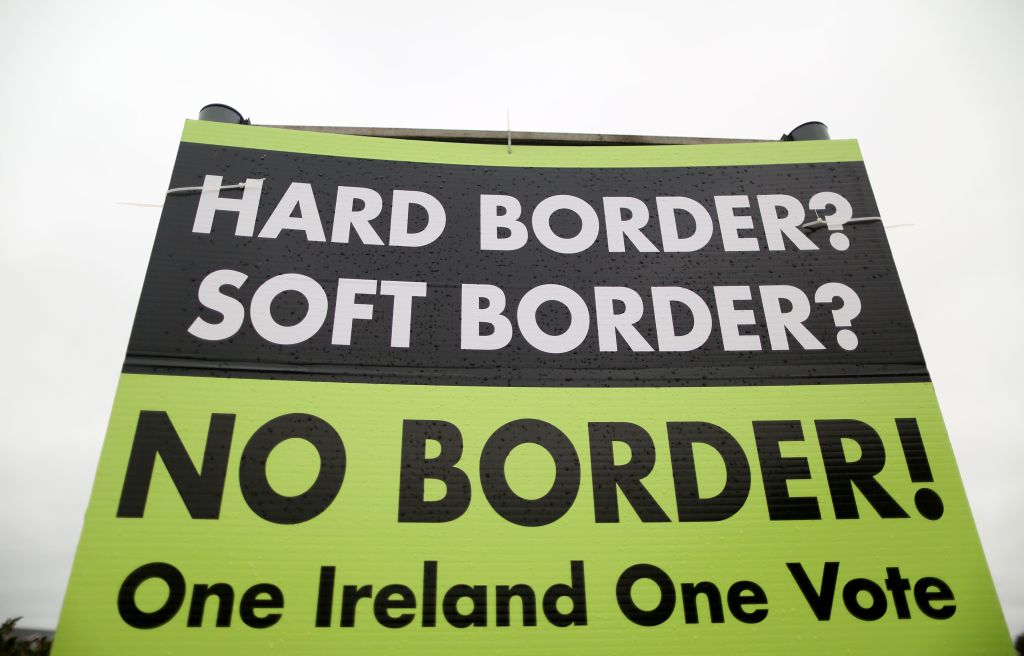Amongst some Brexiteers, there is an eternal faith in technology to solve the Irish border question. This is mistaken. Yet still the idea refuses to go away. Now Theresa May is using this belief to try and get wavering Tory MPs to back her Brexit deal with Brussels. Yesterday, the Prime Minister’s spokesman said the solution for the question of the Irish border ‘could involve technological solutions’. He went on to say:
‘I think there was discussion in cabinet about the fact that the withdrawal agreement recognises and keeps open the potential for alternative arrangements to avoid a hard border on the island of Ireland.’
No 10 is implying that if the UK would put this idea on the table then the EU would be obliged to accept it and allow the UK to escape the backstop. Let me be very short here: if a technological solution is not agreed in black and white now, the chance that the EU will seriously entertain that option later on is nil. As soon as the agreement has been signed and accepted in Parliament, the mood in Brussels will swing decisively against the UK. Manfred Weber, who is highly likely to be the next president of the EU Commission, said recently:
‘I don’t care at the moment about the British problems because they decided to leave.’
His view demonstrates decisively how the EU will treat the UK once it is definitively bound by May’s deal. Nobody should have any illusions otherwise. If Weber succeeds in his bid to replace Jean-Claude Juncker, he is likely to lead a fierce drive to hand Brussels even more power than before. The UK will not be there to lead the movement to stop that. And thanks to the current Brexit deal, the Commission will have the UK precisely where they want it to be. As I explained previously on Coffee House, the UK will be bound by new EU diktats in which it will have no say. Weber and co will make the UK more bound to Brussels than ever during UK’s EU membership. So why should Weber want to change that and offer Britain a way out? The EU will be in a position of waiting for the British discontent with the current arrangement to grow to the point where reapplying to join the EU becomes the best option.
This mood will define how the EU will deal with all aspects of the backstop agreement. A proposed novel technological solution will be treated with extreme scepticism. The Commission will demand pilot projects and evaluations; it will likely wait until some test inevitably shows up a glitch in the proposed system which will allow it to reject the whole idea. With no clout or say in the European Council, the UK will not be in a position to make an appeal to EU member states. What’s more, the EU 27 will have no appetite in a fight with the Commission and Ireland about something that is not even in their interest. Quite simply, it will be best for the EU to maintain the current backstop arrangement for as long as possible. After all, they know that without a technological solution, the future deal will end up looking a lot like the backstop unless the UK ultimately accepts a customs border in the Irish sea.
Under Theresa May’s Brexit deal it will not be the lack of technology that will keep the UK under EU rule but the lack of political will in Brussels. The current nice mutterings about a technological solution from the EU are intended to get the UK Parliament behind this deal. Don’t fall for it. Those warm words will stop immediately on the 29 March 2019.
Johannes de Jong is director of Sallux, the thinktank of the European Christian Political Movement






Comments